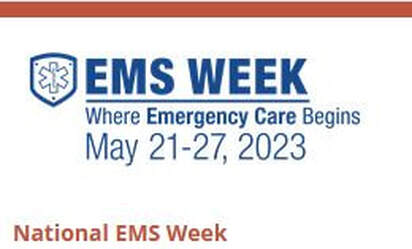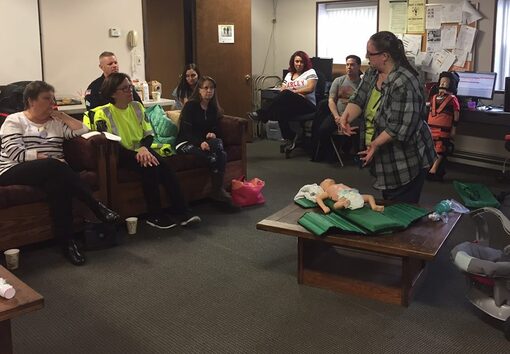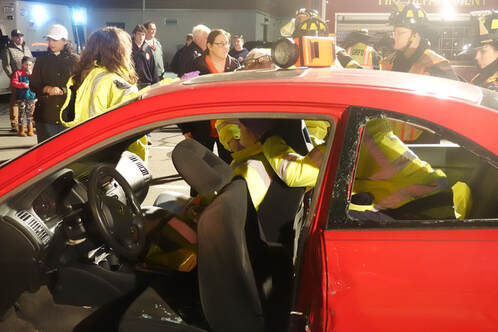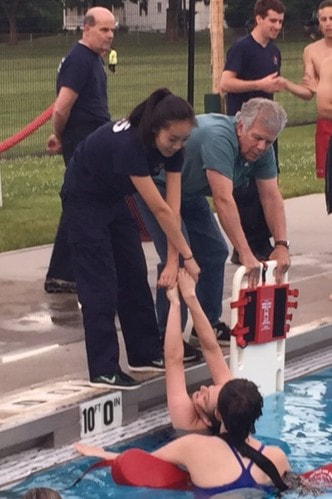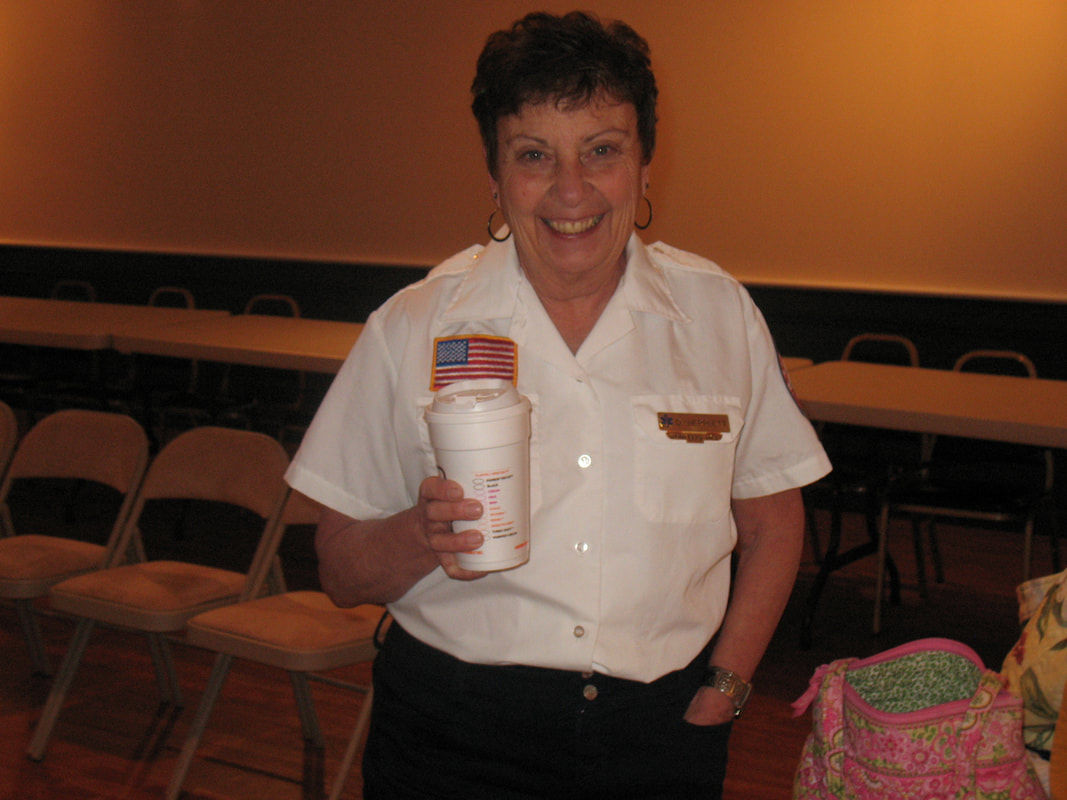Training Day - Monday May 22
There are many types of EMS services across the country. Some communities have private transport services, first responder services, fire-based services, a combination of career and volunteer services or all volunteer services. EMS Week is an ideal time to explain how EMS services operate in our community and why Glen Rock is fortunate to have an all-volunteer ambulance corps. As you will read below, this training describes how we "Rise to the Challenge" to keep Glen Rock's heart beating.
There are many types of EMS services across the country. Some communities have private transport services, first responder services, fire-based services, a combination of career and volunteer services or all volunteer services. EMS Week is an ideal time to explain how EMS services operate in our community and why Glen Rock is fortunate to have an all-volunteer ambulance corps. As you will read below, this training describes how we "Rise to the Challenge" to keep Glen Rock's heart beating.
|
In Comes the Cavalry
That’s what it may seem if you have ever had to call 9-1-1. When you make that call to 911, it is received by a dispatcher at Central Dispatch located in Ridgewood. The dispatcher pages Glen Rock ambulance, fire, and police – depending on the type of emergency. Glen Rock police officers usually arrive on the scene first. Meanwhile, ambulance volunteers respond to the ambulance building, drive one of the ambulances to the scene and administer professional emergency care. Although we are not doctors, as GRVAC EMTs, we are trained to show up on a scene and provide emergency prehospital care trying to comfort or stabilize our patients until we arrive at an emergency room. If Central Dispatch determines it is a life-threatening situation, such as a possible heart attack, stroke, difficulty breathing, major trauma, diabetic emergency, etc., the dispatcher will also page paid hospital paramedics to administer advanced life support treatments – such as initiation of intravenous fluids, medications and possibly invasive procedures. Often, the paramedics travel to the hospital on board the ambulance with the EMTs. While the EMTs are providing medical attention, the ambulance driver radios Central Dispatch to keep the dispatcher abreast of the ambulance’s location. Training as a team is vital to successful outcomes. Once GRVAC EMTs transfer care of our patients to the emergency room, EMTs return to ambulance headquarters, prepare the ambulances for the next emergency (clean, restock, refuel, etc., when needed) and complete a patient care report. Then, we wait for the next medical emergency. Trained Like Professionals Although there are other ways to become a New Jersey certified Emergency Medical Technician (EMTs), most of our EMTs receive initial training at the Bergen County EMS Training Center in Paramus. The initial course consists of approximately 6 months of training, online and practical training which includes sections on airway; diabetic emergencies; cardiac and stroke emergencies; shocks; allergic reactions; obstetrics; fracture management and other traumatic injuries; mass casualty incidents; and many other medical and traumatic situations. Registered nurses may fast-track EMT certification by taking a three-day course and the EMT examination. Once the training is completed, all NJ EMTs must pass a National Registry written examination. Upon certification, GRVAC EMTs will then begin a six-month probationary period. During the probationary period, they will learn to do all the duties of EMTs. They will further their skills in providing medical care to patients, learn to drive the ambulances, under the supervision of a senior member. Just like others in the medical field, EMTs are required to successfully complete in-depth continuing education courses to keep their skills up-to-date and well prepared for all pre-hospital, life saving emergencies. EMT re-certification is granted by the New Jersey Department of Health and is valid for 36-months. During that period, our EMTs take state-approved continuing education units consisting of 24 core refresher credit hours and 24 elective credit hours before applying for recertification. EMTs also take a refresher course for CPR recertification every 24 months. The Borough of Glen Rock also requires that EMTs take the Borough's required annual courses. At a minimum, our chief and lieutenants conduct drills on the first Monday of every month to keep our skills sharp. It's a great time to focus on areas of improvement as well as revisiting proficiency levels with all of our equipment. The GRVAC also contracts with outside training agencies for our training as needed. |
|
When Paul and I got married, we purchased my parents' house in Glen Rock. As a way to meet people, Paul joined the GRVAC. We socialized a lot with other couples and became a close knit group. As time went on, the wives joined too and formed a strong bond and support system through good and bad times. At this point in my life, the GRVAC is a part of my family.
Diane Herrlett - President |
